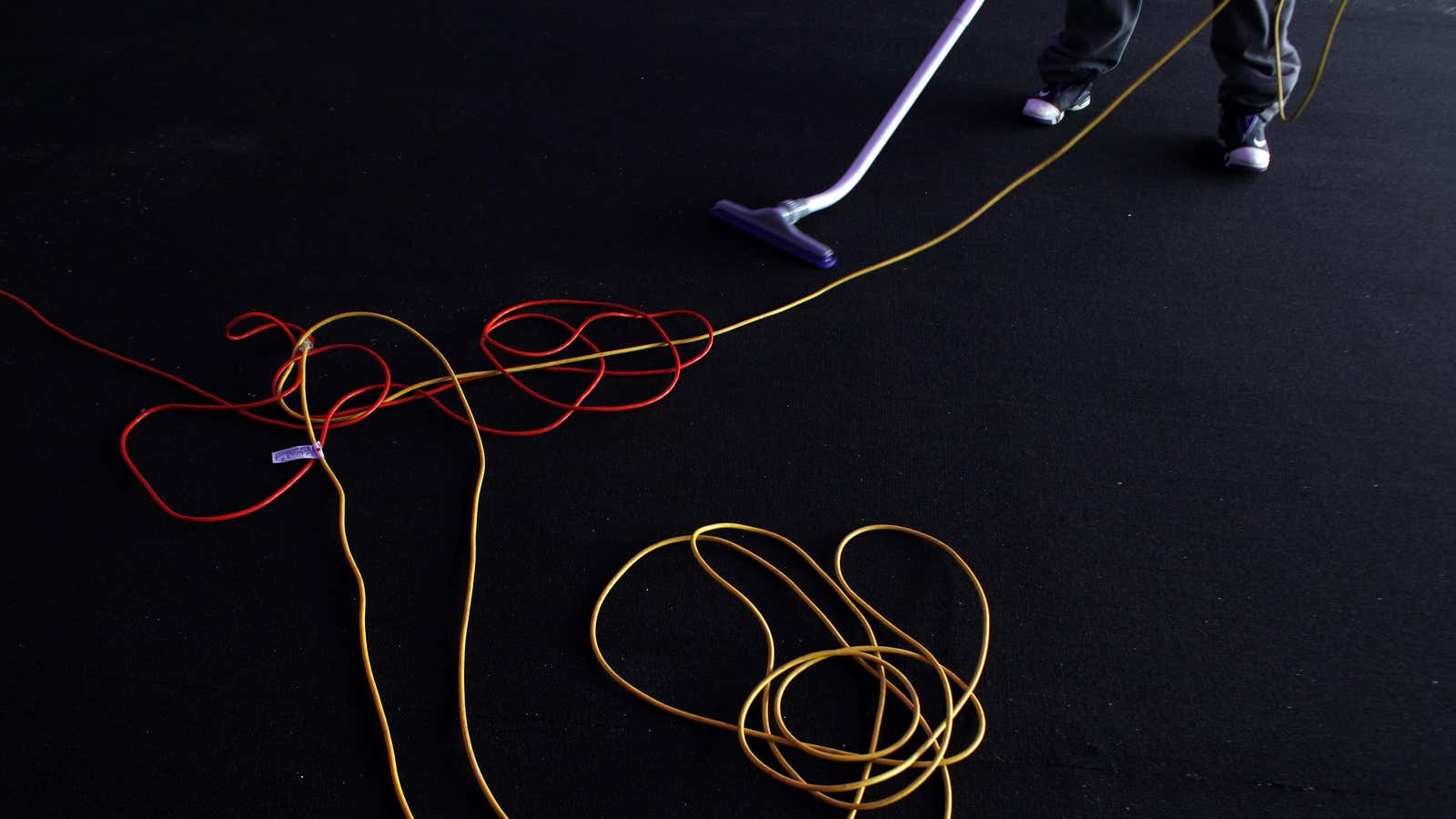If you’re reading this from a Western country in lockdown against the coronavirus pandemic, you’ve possibly had a conversation with your partner, family, or friends about the extent to which you can continue supporting the people who help you live your best life.
You may have discussed how long you can continue to pay your cleaner, if you have one, and wondered how dependent they are on your income. As long as you can afford it, it’s arguably a moral imperative to continue to support others. But should you give your hairdresser the equivalent of a few haircuts? What about your dog walker, babysitter, the kid’s piano teacher, your yoga instructor? You might have wondered, when does the line end?
You’re having to consider the financial and emotional lives of your help in ways that you might never have had to before. But in countries with even more dire inequality, that calculation has long been part of daily life. Now, coronavirus has upped the stakes in unimaginable ways.
Middle- and upper-class families from South Africa to India, Nigeria to Singapore, support an army of helpers, who depend on their jobs to sustain their extended families and communities. Sometimes, that relationship becomes so intertwined that employees become part of the family in ways that are often fraught. Empathetic employers may set up savings funds, pay for homes and children’s education, cover medical emergencies, get pulled into disputes. But the dynamic is built on extreme inequality, and ripe for abuse.
Now with the global economy in a tailspin, the question for many employers helping the poorest of the poor is, without exaggeration, one of life and death. Facing your own economic challenges, but knowing that cutting off help could push people to the absolute brink, what would you do?
In wealthy countries, and under normal circumstances, you might have been able to assuage your guilt over firing someone for bad service with the knowledge that their fall would be cushioned by a social safety net and other employment opportunities. Until now, this has allowed individualism to reign. But in places without those means, collectivism is often the order of the day.
No government bailout or charitable giving at this moment can stop the sudden awakening that none of us are siloed from the people we pay to help us. The West is starting to realize what many people in more unequal countries already know: that when we fall, we fall together. Survival is a collective exercise.
This essay was originally published in the weekend edition of the Quartz Daily Brief newsletter. Sign up for it here.
